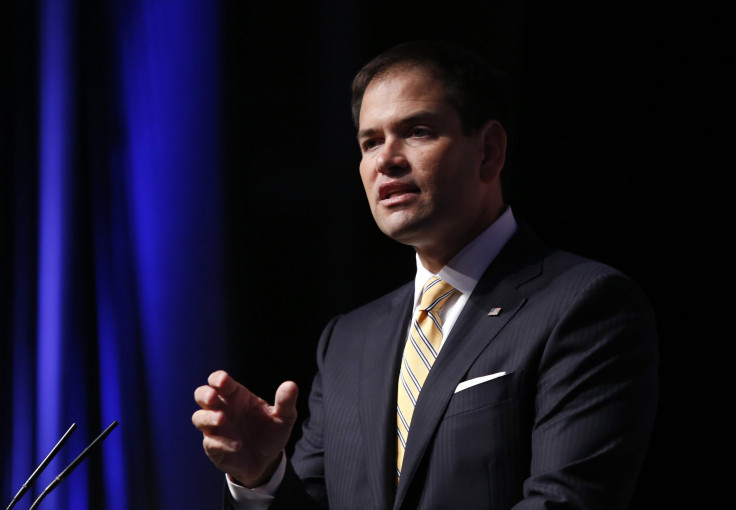Will Marco Rubio Run For President? Florida Senator Preparing For 2016 GOP Race

U.S. Sen. Marco Rubio, R-Fla., will likely run for president in 2016. The Florida Republican is expected to travel to a handful of early voting states over the next few weeks to lay the groundwork for his presidential campaign, according to an exclusive report from ABC News.
Rubio has tapped Anna Rogers, the finance director for the Karl Rove conservative group American Crossroads, to help him raise cash for a White House bid. He is expected to meet with supporters and potential donors in Miami Friday and Saturday to discuss the likely campaign.
Rubio, 43, also is expected to make fundraising stops in California, Texas and Illinois through the next few weeks. His travel schedule comes as he is promoting his new book "American Dreams." He will also visit Iowa, Nevada, South Carolina and New Hampshire in February, all important electoral states for any presidential candidate.
Rubio has said in recent weeks that he would not be chased out of the 2016 race by other prospective candidates, including former Florida Gov. Jeb Bush, who shares many of the same donors and supporters. “I want to be able to mount a credible campaign for the presidency, which I believe we can do irrespective of who else is in the race,” he said Wednesday at a Washington, D.C., breakfast hosted by the Christian Science Monitor.
The presidential campaign would keep Rubio from running for a second Senate term in 2016. Rubio, whose parents were born in Cuba, could help the GOP with its longstanding efforts to win over Latino voters. He has been a fierce critic of President Barack Obama's recent proposal to normalize relations with Cuba. In recent years, he has called on Republican leaders to embrace immigration reform.
“As far as the way forward on immigration, I can tell you how we’re not going to do it -- and that’s in one big bill,” Rubio said this week. “And I can tell you that with tremendous confidence because I tried it, and it didn’t work. And here’s why it doesn’t work: because people do not believe the enforcement will ever happen.”
© Copyright IBTimes 2025. All rights reserved.






















